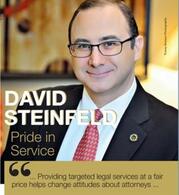Issues that landlords and tenants commonly encounter when their residential lease ends
This article is part three of a three-part series on common problems experienced by landlords and tenants in residential leases. The prior installments covered issues before signing the lease and problems during the lease.
This final installment addresses the two issues that often develop when the lease ends and the tenant moves out. Those are whether the tenant damaged or failed to maintain the property and whether the landlord will refund all or part of the security deposit.
This final installment addresses the two issues that often develop when the lease ends and the tenant moves out. Those are whether the tenant damaged or failed to maintain the property and whether the landlord will refund all or part of the security deposit.
Tenants should document the condition on move-out
From the perspective of the tenant it is wise just before moving out to document the condition of the property with photos and video. This is an exceedingly simple task nowadays using a cell phone. Too often tenants fail to photograph or video the rental unit when they move out and the landlord later claims that the tenant damaged the property.
The damage may have been done by workers hired by the landlord after the tenant vacated who told the landlord the damage was there when they entered. Without proof of the condition at move out it is close to impossible for the tenant to establish that the tenant did not damage the property. Thus it is a good and prudent practice when renting to take video and photos of any rental property at move-in and on move-out.
The damage may have been done by workers hired by the landlord after the tenant vacated who told the landlord the damage was there when they entered. Without proof of the condition at move out it is close to impossible for the tenant to establish that the tenant did not damage the property. Thus it is a good and prudent practice when renting to take video and photos of any rental property at move-in and on move-out.
Landlords should inspect the premises and must give notice of withholding a deposit
From the landlord’s perspective the landlord will want to inspect the property as soon as practical when the lease ends even sometimes with the tenant in the property as a final walk through before moving out. Section 83.49(3) requires that the landlord refund a tenant’s security deposit within 15 days of the tenant moving out or give the tenant written notice within 30 days of the move out if the landlord intents to hold back any part of the deposit. By inspecting the property as soon as possible after the tenant vacates the landlord gives itself the maximum amount of time to determine whether any claim on the deposit is necessary or appropriate.
Takeaways on problems landlords and tenants can face in residential leasing
In residential leasing the landlord provides the property and the tenant pays for the privilege to live there. The parties normally document their business relationship in a written lease agreement but Chapter 83 in the Florida Statutes provide for certain obligations that a lease cannot modify or that fill in the gaps if the lease does not address those.
Troubles between the landlord and tenant can arise before, during, or even after the lease term, but eviction of a tenant or a tenant moving out and suing for breach of the lease are not the only options available to the parties in remedying those problem. Although our courts try to provide an efficient process by which landlords and tenants can resolve their disputes the parties should always strive to work their issues out by and between themselves first and have the ability to work with an experienced attorney to define their options and to properly document their agreements.
Troubles between the landlord and tenant can arise before, during, or even after the lease term, but eviction of a tenant or a tenant moving out and suing for breach of the lease are not the only options available to the parties in remedying those problem. Although our courts try to provide an efficient process by which landlords and tenants can resolve their disputes the parties should always strive to work their issues out by and between themselves first and have the ability to work with an experienced attorney to define their options and to properly document their agreements.
Click for Part 1 of this series on common pre-leasing issues
Click for Part 2 of this series on problems during a lease
Prepared by business litigation expert attorney David Steinfeld

David Steinfeld is one of the few Board Certified business law experts in Florida. He has been licensed for more than 25 years. He is AV-Preeminent rated, ranked as one of the Best Lawyers in America by U.S. News and World Report, and consistently named a Florida Super Lawyer and one of Florida’s Legal Elite. Dave has also received Martindale’s prestigious Judicial Edition Award for high reviews by Judges, its Platinum Client Champion Award and has a 10.0-Superb rating on AVVO as well as a 10.0 rating on Justia, lawyer reviews websites.
Check out business lawyer David Steinfeld online for helpful videos and articles on Florida business law, real estate disputes, and electronic discovery solutions for your business. This article is provided for informational purposes only.
Check out business lawyer David Steinfeld online for helpful videos and articles on Florida business law, real estate disputes, and electronic discovery solutions for your business. This article is provided for informational purposes only.
